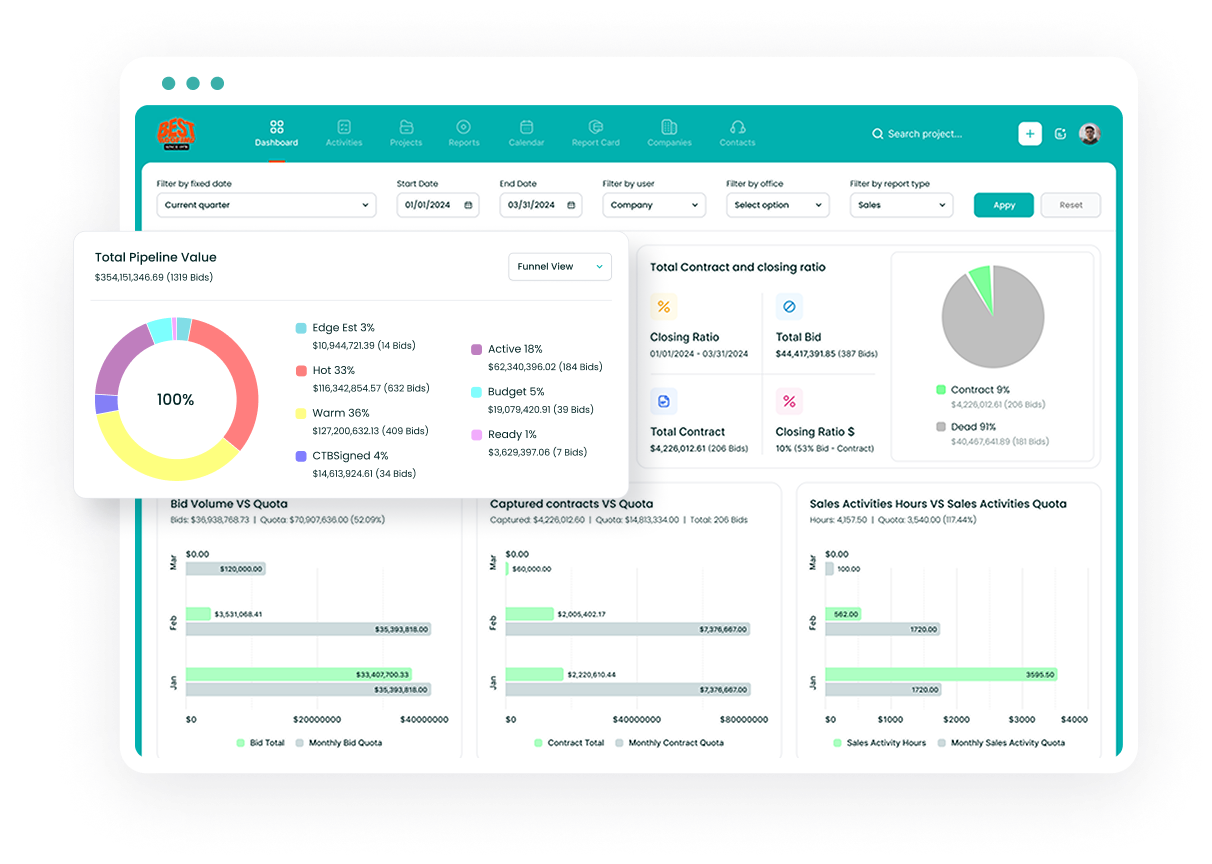How to Create a Proforma Invoice in Sage 100
In the fast-paced world of business transactions, managing invoices efficiently is paramount to maintaining healthy cash flow and strong customer relationships. Creating a proforma invoice in Sage 100 can often be a daunting task, especially for those unfamiliar with the system's intricacies. However, with the right guidance, transforming this process into a seamless part of your sales process is entirely achievable. This guide delves deep into the steps, nuances, and best practices for crafting proforma invoices in Sage 100, ensuring your business operations remain smooth and professional.
What is a Proforma Invoice
A proforma invoice serves as a preliminary document sent to buyers before finalizing a sale. This document outlines potential transaction details without being an official payment request, giving prospective customers clarity about costs and helping them make informed decisions.
The distinction between proforma and sales invoices remains significant in business operations. While proforma invoices function as informational tools, sales invoices represent official payment requests that affect accounting records and accounts receivable balances. This differentiation proves essential for maintaining accurate financial documentation and proper business record-keeping.
Business owners and accounting professionals value proforma invoices for their ability to facilitate smoother transactions. These documents enable transparent communication about pricing, terms, and delivery expectations before committing to a sale. The practice of using proforma invoices has become increasingly important in modern business operations, particularly for international trade and complex transactions.
Creating Proforma Invoices in Sage 100
The process of generating proforma invoices in Sage 100 involves several straightforward steps that ensure accuracy and efficiency. Starting with the Sales module, users can navigate to the Sales Invoices section to begin creating new documents. This centralized approach streamlines the entire invoicing process.
When creating a new invoice, entering customer information accurately sets the foundation for successful transactions. The system requires details such as contact information, delivery addresses, and billing information. These details ensure proper document routing and help maintain organized customer records.
The specific designation of an invoice as proforma happens through the Save as checkbox feature. Users must select Pro Forma Invoice from available options to ensure the document remains separate from standard sales invoices. This designation prevents the document from affecting accounting records while maintaining its informational purpose.
After entering product or service details, reviewing the entire document becomes crucial for accuracy. Sage 100 provides various options for finalizing the document, including saving, emailing, or printing. These flexible output options accommodate different business needs and customer preferences.
Managing Invoice Types in Sage 100
Sage 100 accommodates various invoice types that serve different purposes within business operations. Each type fulfills specific needs in sales and accounting processes, providing flexibility for diverse business requirements.
Standard invoices represent the most common type used for requesting payment after providing goods or services. These documents update accounts receivable and maintain accurate financial records. Direct invoices prove useful for immediate billing situations without requiring previous sales orders.
Commercial invoices play a vital role in international trade by providing detailed information about shipped goods. These documents facilitate customs clearance and ensure compliance with international trade requirements. Memo invoices serve internal purposes, helping businesses track adjustments or transfers without external distribution.
Credit notes provide a method for adjusting amounts owed due to returns or overpayments. Sage 100 supports various credit memo transactions, ensuring accurate financial record maintenance and customer account management.
Customizing Invoice Templates
Sage 100 offers robust customization options that allow businesses to create professional, branded invoice templates. These capabilities ensure consistency across all business documents while maintaining necessary information clarity.
Creating effective invoice templates requires attention to detail and understanding of business needs. The system provides tools for incorporating company logos, adjusting layouts, and modifying text elements to match brand standards. These customization options help businesses maintain professional appearances while ensuring document functionality.
Template modifications should focus on both aesthetic appeal and practical functionality. Proper spacing, clear section organization, and logical information flow contribute to template effectiveness. The customization process should prioritize readability and professional presentation.
Working with multiple templates allows businesses to address various scenarios and customer needs. Different templates might serve different purposes or customer segments while maintaining brand consistency. This flexibility helps businesses respond effectively to diverse requirements.
Advanced Features and Integration
These advanced capabilities enhance proforma invoice management in Sage 100:
- Credit card processing integration
- Multi-currency support
- Automated tax calculations
- Inventory management connection
- Customer relationship management tools
The system provides comprehensive support for international business operations through various features. Managing multiple currencies becomes straightforward with built-in conversion tools and exchange rate updates. Tax compliance remains accurate through automated calculations based on jurisdiction requirements.
Integration with other business systems creates a cohesive operational environment. Data flows smoothly between different modules, reducing manual entry requirements and potential errors. This integration supports efficient business processes and improved decision-making capabilities.
Customer relationship management features enhance the overall business experience. Tracking customer interactions, maintaining accurate records, and managing communication become more efficient through integrated tools. These capabilities support stronger customer relationships and improved service delivery.
Best Practices for Invoice Management
Professional invoice management requires consistent attention to detail and adherence to established procedures. Regular template updates ensure continued alignment with business needs and regulatory requirements. Maintaining accurate customer information supports efficient document processing and delivery.
Security measures protect sensitive information and maintain data integrity. Implementing appropriate user permissions and regular backup procedures safeguards business operations. These practices help prevent unauthorized access and protect valuable business data.
Effective invoice management includes regular monitoring and reporting. Tracking document status, managing conversions, and analyzing performance metrics support informed decision-making. These activities help businesses maintain efficient operations and identify improvement opportunities.
The following practices ensure successful proforma invoice implementation:
- Regular template review and updates
- Consistent branding across all documents
- Accurate customer record maintenance
- Proper security protocol implementation
- Regular system backup procedures
Troubleshooting Common Issues
Addressing common challenges in proforma invoicing requires systematic approaches and attention to detail. Data entry errors often occur but can be minimized through careful validation procedures and staff training. Regular system checks help identify potential issues before they affect business operations.
Template customization challenges typically stem from technical configurations or permission settings. Resolving these issues involves checking system requirements and ensuring proper setup. Support resources provide guidance for addressing common customization challenges.
Currency conversion and tax calculation issues require careful attention to system settings and regular updates. Maintaining current exchange rates and tax tables helps ensure accurate calculations. Regular verification of these calculations supports compliance requirements and customer satisfaction.
Automating Invoice Workflows
Automation capabilities in Sage 100 transform traditional invoicing processes into streamlined operations. The system offers various tools for scheduling, batch processing, and automated notifications that reduce manual intervention requirements. These features support efficient business operations while maintaining accuracy.
Modern businesses benefit from automated approval workflows that expedite document processing. Setting up approval chains ensures proper oversight while reducing processing delays. The automation tools integrate seamlessly with existing business processes, supporting smooth operations.
Digital document routing enhances communication efficiency between departments and stakeholders. Automated notifications keep relevant parties informed about document status and required actions. This systematic approach reduces errors and improves overall process management.
Data Analytics for Invoice Management
Invoice data provides valuable insights into business performance and customer behavior patterns. Regular analysis of invoicing patterns reveals trends in payment timing, frequent purchase combinations, and seasonal variations. This information supports strategic decision-making and process improvements.
Advanced reporting capabilities enable detailed examination of invoicing metrics. The system generates comprehensive reports about invoice aging, payment patterns, and customer purchasing behaviors. These insights help businesses optimize their invoicing strategies and improve cash flow management.
Analytics tools support proactive management of potential issues through early warning indicators. Monitoring payment patterns and identifying potential delays allows businesses to address concerns before they become significant problems. This proactive approach helps maintain healthy business relationships and stable cash flow.
Performance tracking through analytics provides clear visibility into operational efficiency. Measuring key performance indicators helps identify areas for improvement and optimization. Regular monitoring ensures continuous process refinement and enhanced business outcomes.
Mobile Invoice Management
Mobile access to invoice management systems provides flexibility for modern business operations. Staff members can review, approve, and process invoices from any location, supporting efficient workflow management. This mobility ensures business continuity and responsive customer service.
Secure mobile applications extend system functionality beyond office boundaries. Users can access essential features while maintaining data security and process integrity. Mobile capabilities support rapid response to customer needs and efficient document processing.
The integration between mobile and desktop platforms ensures consistent data access and management. Updates synchronize across all platforms, maintaining accurate records and supporting informed decision-making. This seamless integration enhances operational efficiency and user experience.
Document Storage Solutions
Digital document management requires robust storage solutions that ensure data accessibility and security. These essential practices support efficient document management:
- Systematic file organization
- Regular backup procedures
- Version control implementation
- Access permission management
- Audit trail maintenance
Professional document management supports compliance requirements and operational efficiency. Implementing structured storage systems ensures quick document retrieval and maintains data integrity. These practices help businesses operate efficiently while meeting regulatory requirements.
Effective storage solutions incorporate disaster recovery capabilities and business continuity features. Regular system backups and redundant storage options protect valuable business data. These measures ensure business resilience and data protection.
Optimize Your Proforma Invoice Process
The implementation of efficient proforma invoice management significantly impacts business success. Organizations that optimize their invoicing processes often experience improved cash flow and stronger customer relationships. These improvements contribute directly to business growth and stability.
Successful implementation requires commitment to established procedures and continuous process refinement. Regular system updates and staff training ensure optimal use of available features. This dedication to improvement supports long-term business success.
Professional invoice management represents a critical business function that deserves focused attention and resources. Implementing the strategies and practices discussed in this guide will enhance operational efficiency and customer satisfaction. These improvements position businesses for sustainable growth and success.
The CRM Built For Construction Companies
No more disorganized data. Track your leads, bids, and customers all in one place.
Seamless Integration with:
✅ Foundation ✅ Viewpoint ✅ Sage and more

Request a Live Demo Now
Learn more about how Followup CRM can help your construction company grow.





-Nov-13-2024-05-14-57-1925-PM.webp)

-Nov-13-2024-04-04-05-4424-PM.webp)
-Jan-27-2025-08-21-09-3793-PM.webp)